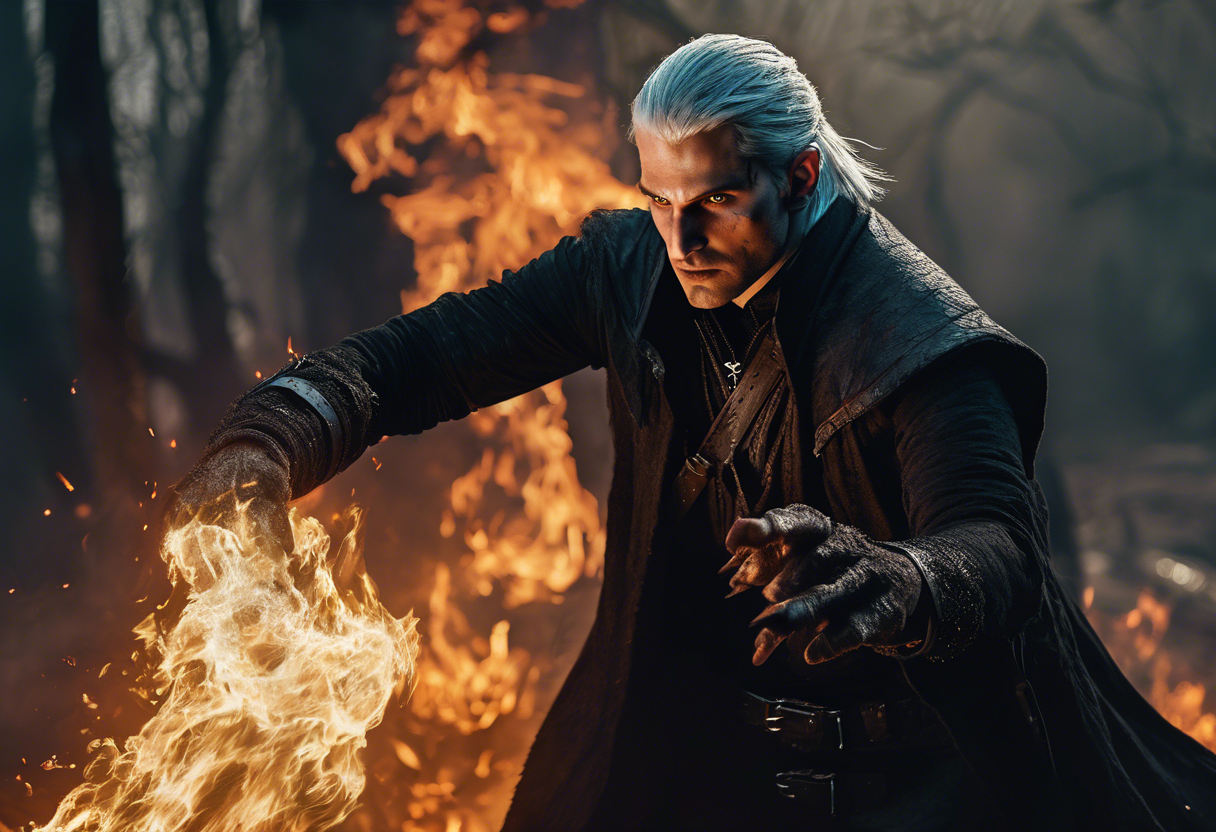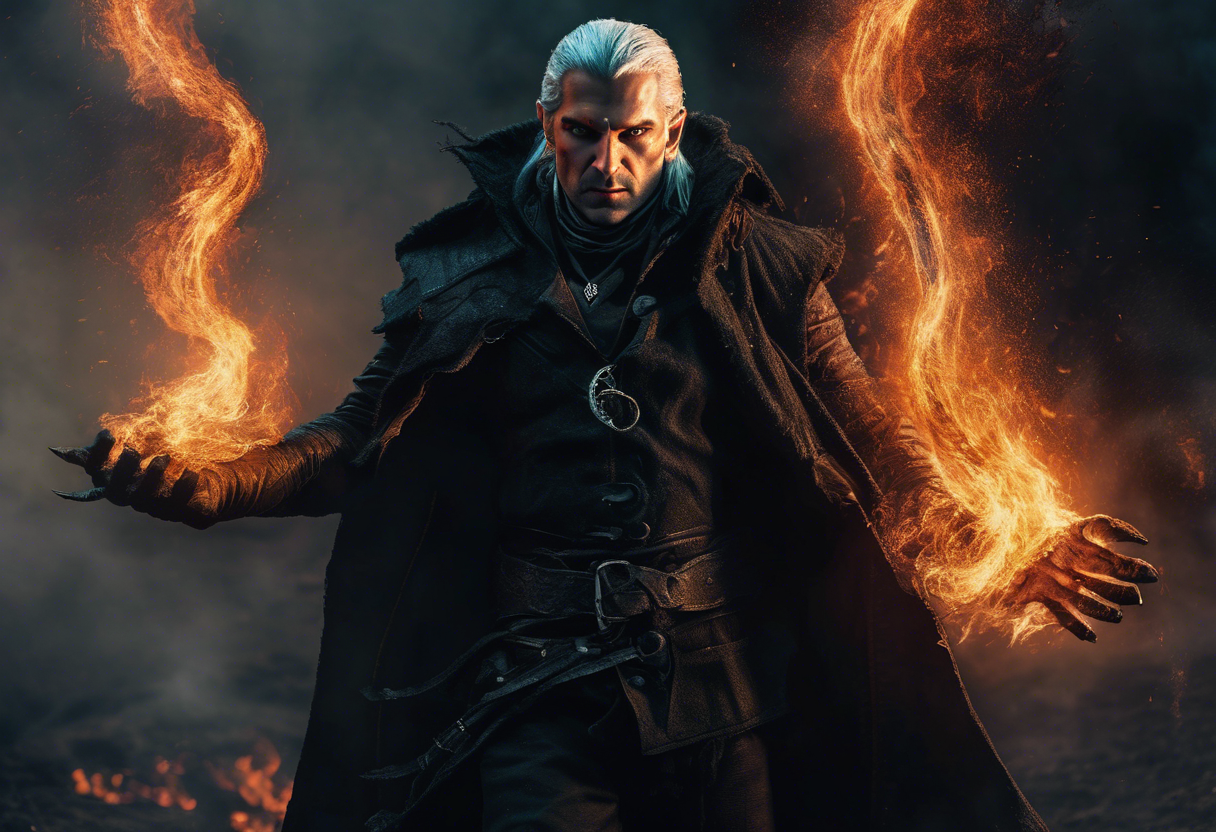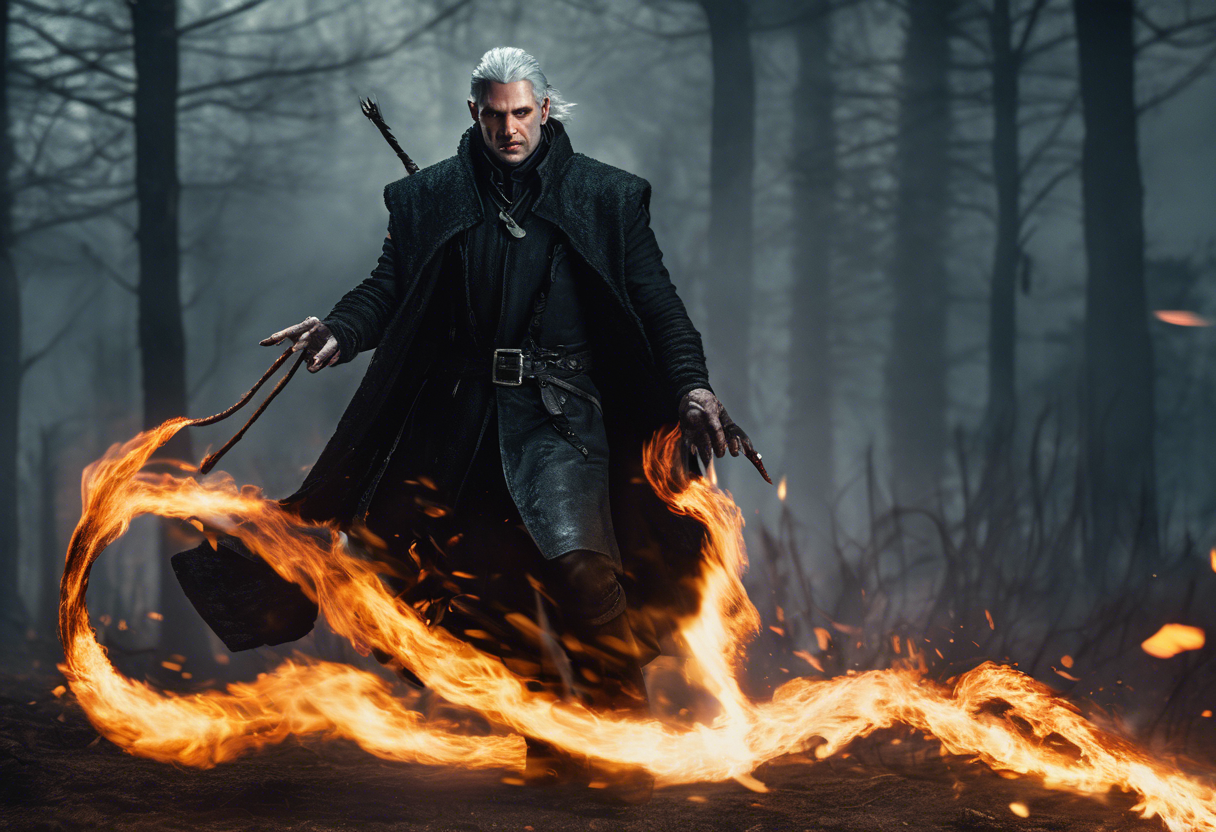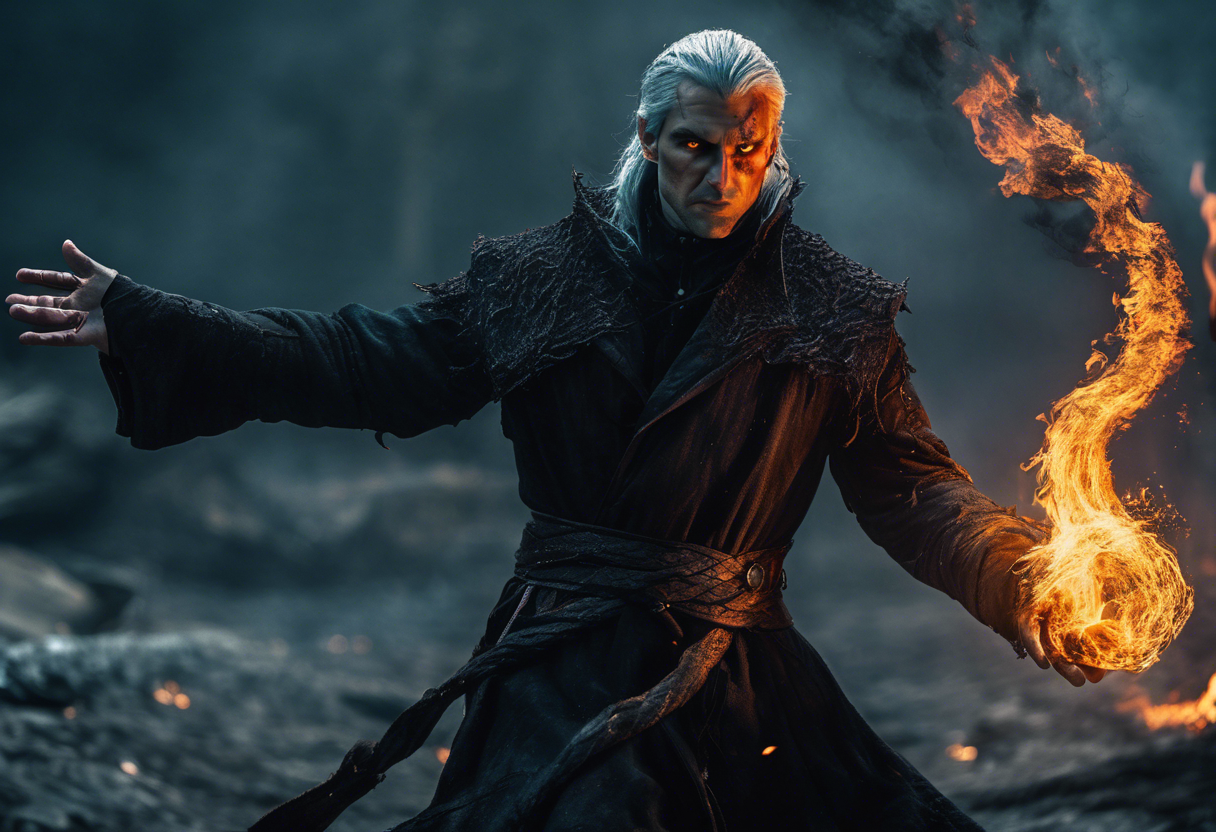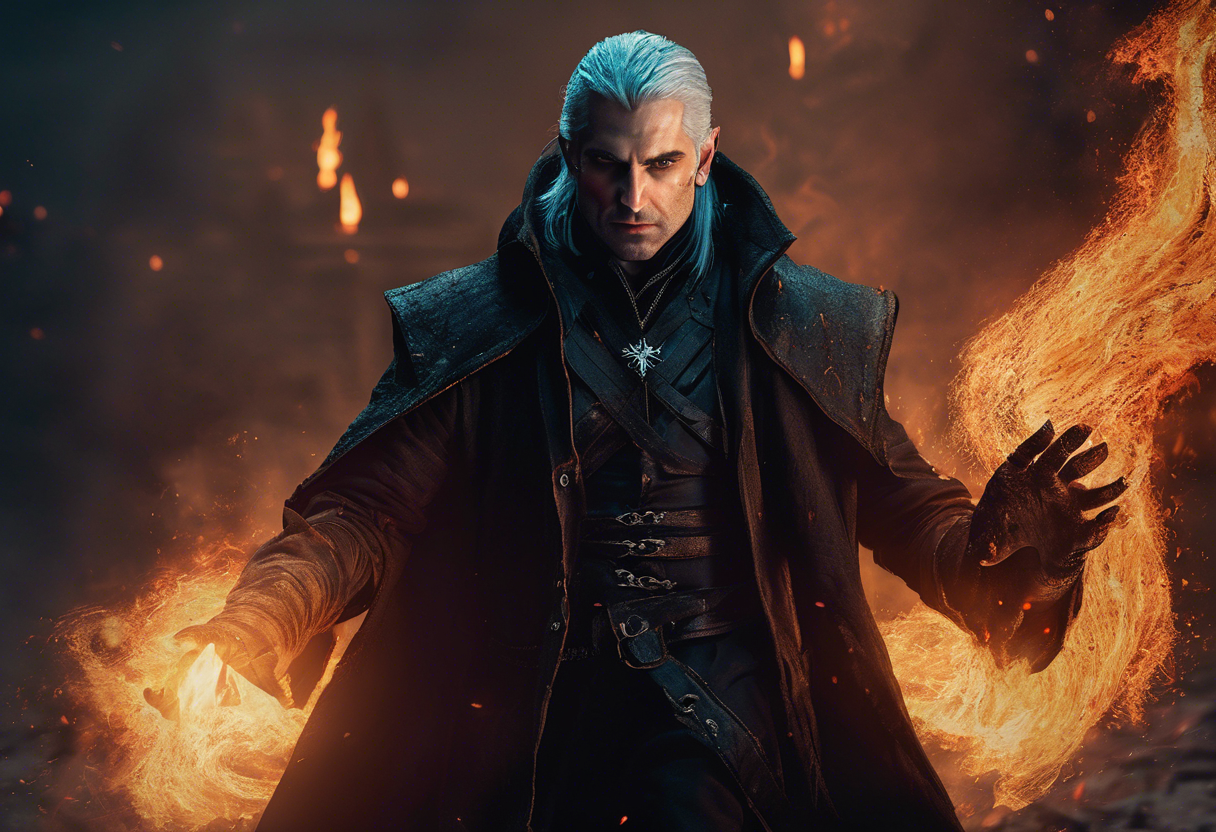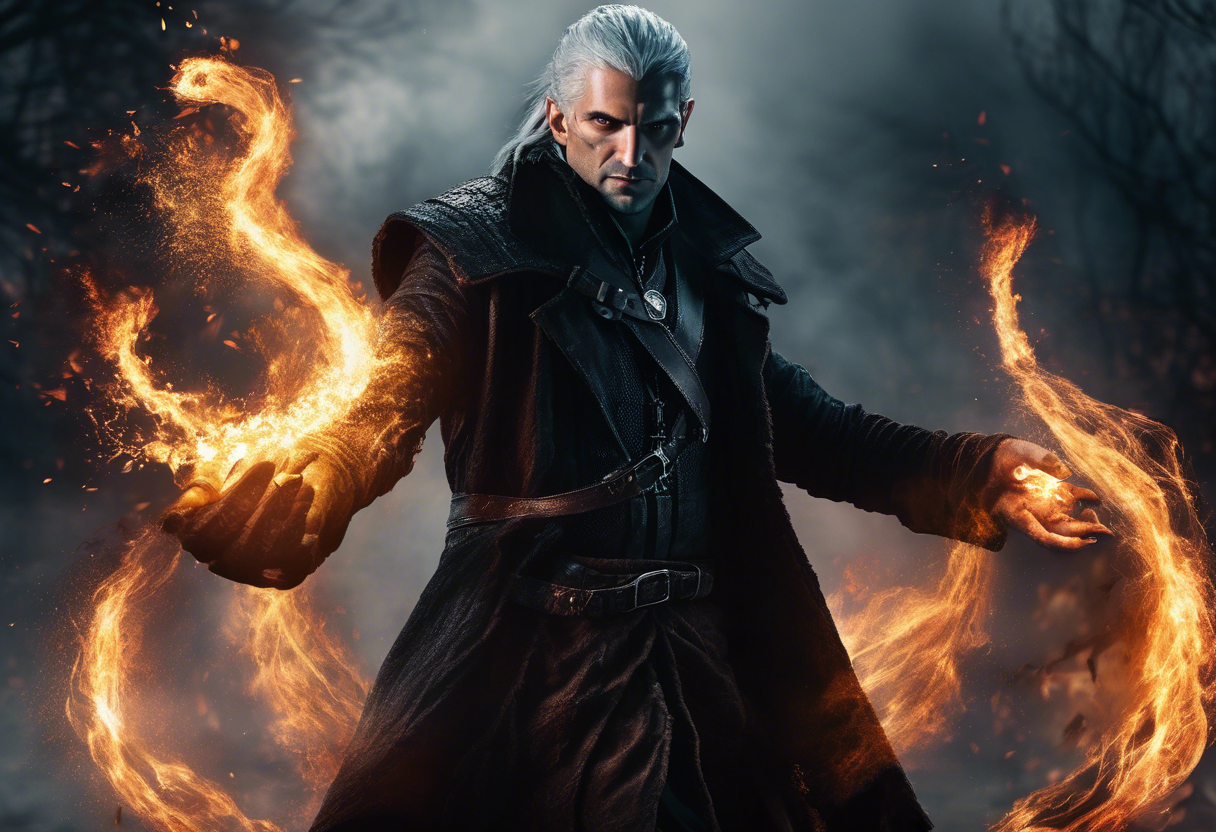Contents
Introduction
Rience, a pivotal character in the Netflix series The Witcher, is a fire mage with a complex and tumultuous backstory that deeply intertwines with the main narrative of the show. Introduced in Season 2, Rience is portrayed initially by Chris Fulton and later recast with Sam Woolf in Season 3[2][5].
Originating from Andrzej Sapkowski’s The Witcher book series, specifically in Blood of Elves, Rience is a recurring figure known for his relentless pursuit of Ciri, the Lion Cub of Cintra. His character embodies the darker aspects of the Continent’s magical and political landscape, highlighting themes of power, loyalty, and the consequences of ambition.
Rience’s defining traits include his mastery of fire magic, his cunning and sadistic nature, and his unwavering dedication to his missions. These characteristics make him a formidable antagonist, posing significant threats to Geralt of Rivia, Yennefer of Vengerberg, and Ciri herself.
Role in the Series
Rience’s storyline in The Witcher series is marked by his relentless pursuit of Ciri. Initially imprisoned by Queen Calanthe of Cintra for ten years, Rience is approached by Lydia van Bredevoort with an offer to capture Ciri in exchange for his freedom[1][4].
Upon his release, Rience employs brutal methods to gather information about Ciri’s whereabouts. He captures and tortures Jaskier, the bard, hoping to extract details about Geralt and Ciri’s locations. However, his plans are foiled by Yennefer’s timely intervention, which results in Rience suffering a facial scar from Yennefer’s counterattack[1][3].
Rience’s actions become increasingly desperate and violent as he continues his pursuit. He uses a portal to infiltrate Kaer Morhen, attacking Vesemir and Triss, and steals a mutagen containing Ciri’s blood. He is later given a crew, including the Mitchell Brothers, to capture Ciri from the Temple of Melitele, but this attempt is thwarted by Geralt[1].
In Season 3, Rience continues his hunt for Ciri, using a Jackapace monster to track her during the Belleteyn Festival. His actions lead to encounters with Codringher and Fenn, whom he attempts to kill to protect his master’s identity. Unbeknownst to Rience, these events are witnessed by Philippa, adding another layer of complexity to his storyline[1].
Rience’s relationships with other characters are predominantly adversarial. His interactions with Geralt, Yennefer, and Ciri are driven by his mission to capture Ciri, while his relationship with Lydia and his master, Vilgefortz, reveal a deeper web of loyalty and manipulation[1][4].
Character Analysis
Rience’s personality is characterized by his intelligence, cunning, and a profound lack of empathy. He is driven by a singular focus on achieving his objectives, no matter the cost. This sadistic nature is evident in his torture of Jaskier and his willingness to harm others to gain information[1][4].
Despite his cold exterior, Rience’s motivations are rooted in a desire for freedom and power. His imprisonment and subsequent release create a sense of indebtedness to Vilgefortz, which he attempts to repay through his relentless pursuit of Ciri. This dynamic highlights the themes of servitude and the moral compromises one makes in the pursuit of power[1][4].
Rience’s strengths lie in his magical abilities and his strategic thinking. However, his flaws include his underestimation of his adversaries and his emotional instability, which often lead to miscalculations and failures. These elements make him a compelling and relatable character, as his vulnerabilities and strengths are intricately woven into the narrative[1][4].
Themes and Symbolism
Rience embodies several key themes in The Witcher series. His character represents the dangers of unchecked ambition and the consequences of seeking power at any cost. His actions symbolize the darker aspects of human nature, highlighting the cruelty and violence that can result from obsessive pursuits[1][4].
Moreover, Rience’s storyline delves into the theme of servitude and loyalty. His relationship with Vilgefortz and Lydia illustrates the complex web of obligations and debts that characters in the series often find themselves entangled in. This theme is particularly significant in the context of the Continent’s political and magical hierarchies[1][4].
Cultural Impact
Rience has made a significant impact on the cultural landscape of The Witcher fandom. His introduction in Season 2 marked a new level of complexity in the series, adding depth to the narrative and expanding the universe of characters. Fans have been particularly intrigued by his backstory and motivations, which have sparked numerous discussions and analyses within the fan community[2][5].
The recasting of Rience from Chris Fulton to Sam Woolf in Season 3 has also been a topic of interest, with fans debating the reasons behind the change and how it affects the character’s portrayal. Despite this change, Rience remains a central figure in the series, influencing the plot and character dynamics significantly[2][5].
Critical Reception
Critics and audiences have received Rience with a mix of fascination and apprehension. His brutal methods and relentless pursuit of Ciri have made him a compelling villain, with many praising the depth and complexity brought to the character by both Chris Fulton and Sam Woolf[2][5].
However, some critics have noted the potential for Rience’s character to become one-dimensional due to his singular focus on capturing Ciri. Despite this, his interactions with other characters and the broader themes he represents have generally been well-received, adding richness to the narrative[2][5].
Legacy
Rience’s enduring appeal lies in his multifaceted character and the significant role he plays in the The Witcher series. His story arc contributes to the broader exploration of power, loyalty, and the human condition, making him a memorable and impactful character.
As a character archetype, Rience represents the darker aspects of ambition and the consequences of unchecked power. His influence can be seen in other works of fantasy and fiction, where similar characters embody these themes. His legacy continues to inspire discussions and analyses within the fan community, solidifying his place as a pivotal figure in the The Witcher universe.
References
- https://www.dualshockers.com/the-witcher-season-3-rience/
- https://screenrant.com/why-rience-was-recast-in-the-witcher-season-3/
- https://www.imdb.com/news/ni63736512/
- https://www.cbr.com/witcher-season-2-who-is-rience/
- https://redanianintelligence.com/2022/08/22/the-witcher-season-3-recasts-its-fiery-villain-rience/

